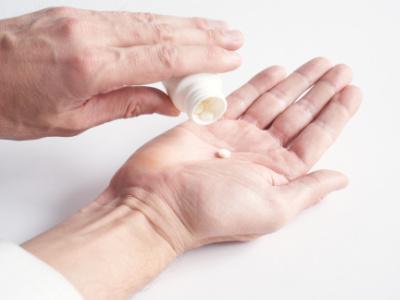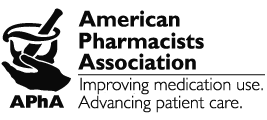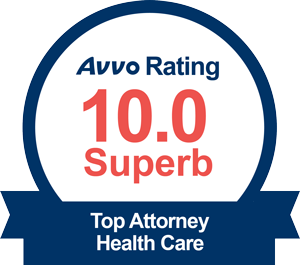4 Reasons a Pharmacist May Be Accused of Drug Diversion
 Pharmacists play a crucial role in the healthcare system by ensuring that patients receive the correct medications at the proper dosages. However, there are situations where pharmacists may be accused of drug diversion, which refers to the illegal distribution or misuse of prescription drugs. These accusations can have severe consequences for a pharmacist’s professional license, and they may also lead to DEA investigations and possibly even criminal prosecution. Pharmacists who have been accused of drug diversion or other violations related to controlled substances can work with an attorney to determine their best options for defending their licenses.
Pharmacists play a crucial role in the healthcare system by ensuring that patients receive the correct medications at the proper dosages. However, there are situations where pharmacists may be accused of drug diversion, which refers to the illegal distribution or misuse of prescription drugs. These accusations can have severe consequences for a pharmacist’s professional license, and they may also lead to DEA investigations and possibly even criminal prosecution. Pharmacists who have been accused of drug diversion or other violations related to controlled substances can work with an attorney to determine their best options for defending their licenses.
Some common issues that may arise in cases where pharmacists are accused of drug diversion include:
1. Addiction and Substance Abuse
Many of the primary reasons pharmacists may engage in drug diversion are due to personal struggles with addiction or substance abuse. Pharmacists have easy access to various controlled substances. Those who are battling addiction may be tempted to divert these drugs for their personal use.
Addiction and substance abuse among healthcare professionals is a serious issue that affects people from all walks of life. It is important to recognize that addiction is an illness rather than a moral failing, and seeking help through rehabilitation programs can provide support and guidance toward recovery. A pharmacist who is facing license discipline because of issues related to substance abuse may be able to demonstrate that they are making efforts to receive the proper treatment and avoid dangerous or illegal behavior in the future.
2. Financial Gain
Some pharmacists may be motivated by money when engaging in drug diversion activities. By illegally distributing prescription drugs on the black market or selling them directly to people without prescriptions, they may have the opportunity to make significant profits. However, just because a pharmacist has the opportunity to make money by illegally selling drugs, this does not mean that they have actually done so. Defending against accusations that a pharmacist has engaged in drug diversion for financial gain may require legal assistance from an attorney who can address issues related to professional license discipline and DEA investigations.
3. Pressure From Patients or Colleagues
Sometimes, pharmacists may need to respond to patients or colleagues who request access to certain medications without proper prescriptions or medical justification. This can put pharmacists in a difficult position, as they must balance patient care with legal and ethical responsibilities. By prioritizing patient safety and adhering to the law, pharmacists can avoid accusations of illegal or unethical behavior. If necessary, they may need to respond to claims that they have allowed drugs to be used for non-medical purposes by demonstrating that they followed all appropriate procedures, including prescription drug monitoring programs.
4. Lack of Proper Controls
Inadequate controls within pharmacy settings can also contribute to instances of drug diversion. Poor inventory management systems or lax supervision may create opportunities for pharmacists or other staff members to divert prescription drugs without detection.
To prevent drug diversion, pharmacies should implement robust control measures such as regular audits, strict inventory tracking systems, and thorough background checks on employees. These measures help ensure accountability and minimize the risk of illegal activities taking place within the pharmacy. When responding to accusations that pharmacy procedures have led to drug diversion, pharmacists may provide evidence of the controls they have in place and documentation that drugs have been tracked, dispensed, and disposed of correctly.
The Impact of Drug Diversion Accusations on a Pharmacist
When a pharmacist is accused of drug diversion, their professional license and DEA controlled substance registration may be at stake. The consequences can vary depending on the severity of the allegations, but they may include:
-
Suspension or revocation of a professional license: A pharmacist who faces accusations of drug diversion may be subject to disciplinary action, which may include a temporary license suspension or an indefinite license revocation. Without a valid license, a pharmacist will no longer be able to continue providing pharmacy services.
-
Loss of DEA controlled substance registration: The Drug Enforcement Administration (DEA) has the authority to revoke a pharmacist's ability to handle and dispense controlled substances. After a registration has been suspended or revoked, regaining it can often be difficult.
-
Legal penalties: A pharmacist who is convicted of a criminal drug diversion offense may face substantial fines along with potential jail time. They will also have a permanent criminal record, which may affect their ability to work in the healthcare industry in the future.
Contact an Experienced Indiana Pharmacist License Defense Attorney
If you are a pharmacist who has been accused of drug diversion, it is crucial to seek legal representation as soon as possible. At The Law Offices of Joseph J. Bogdan, Inc., our Indianapolis pharmacist license discipline lawyer can help protect your rights and work towards minimizing the potential consequences on your professional license and your career. To schedule a free consultation, please contact us at 463-219-2612.









